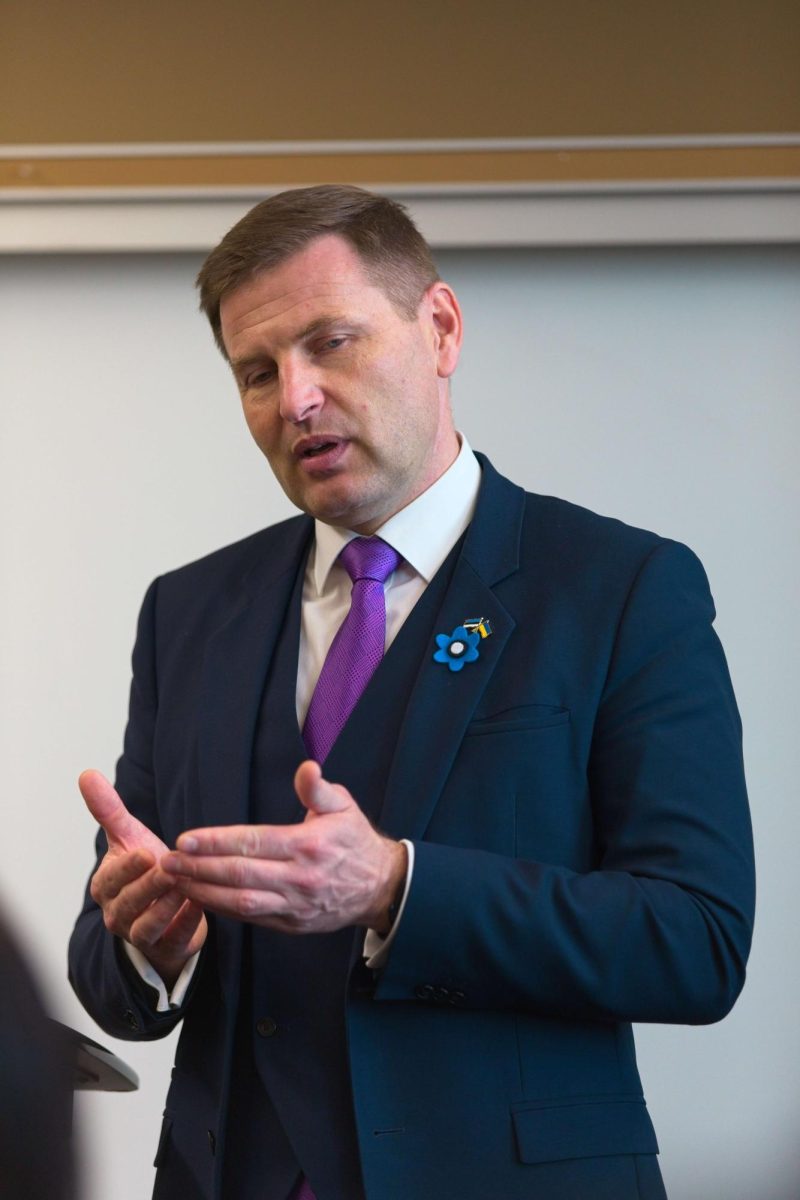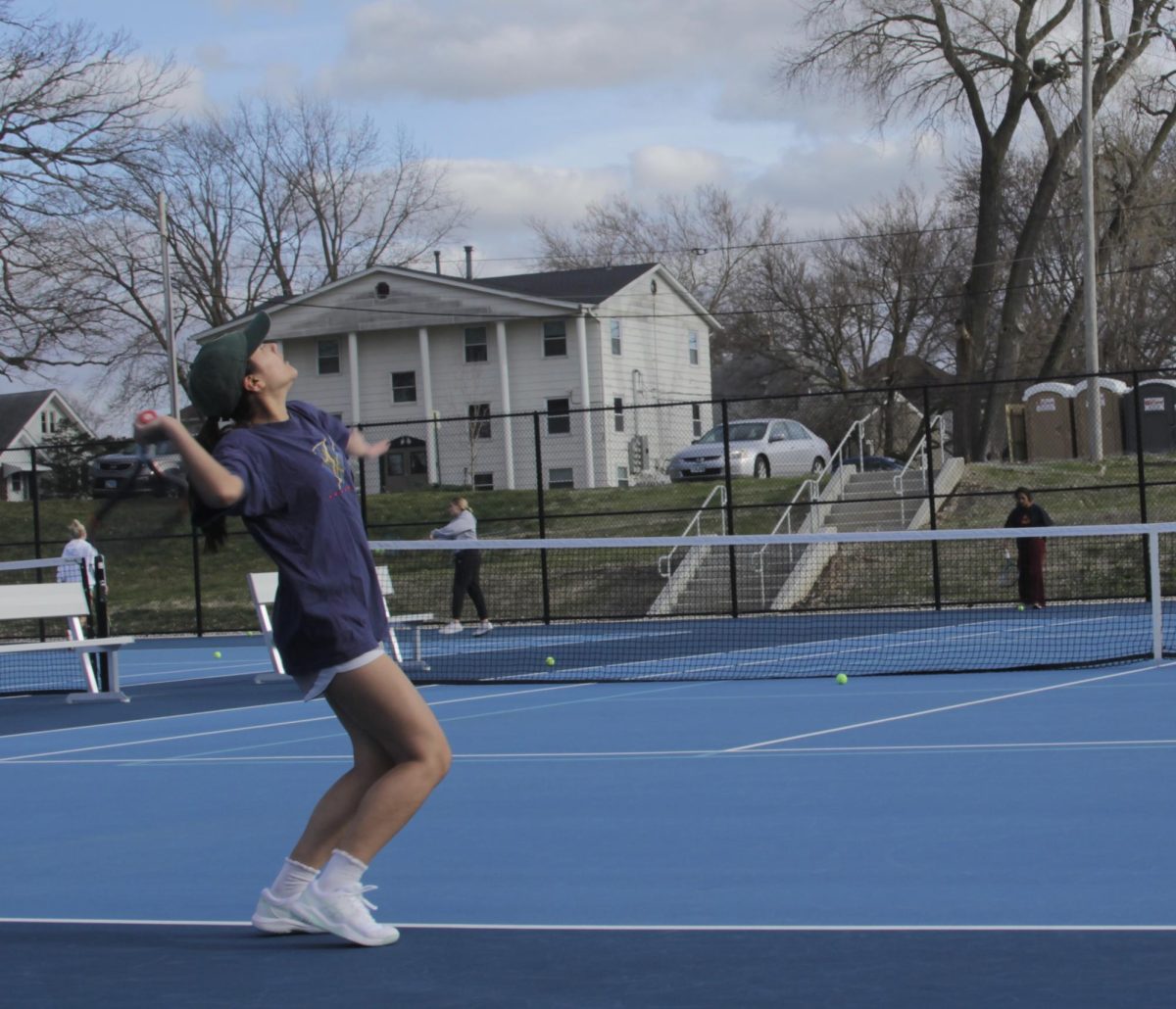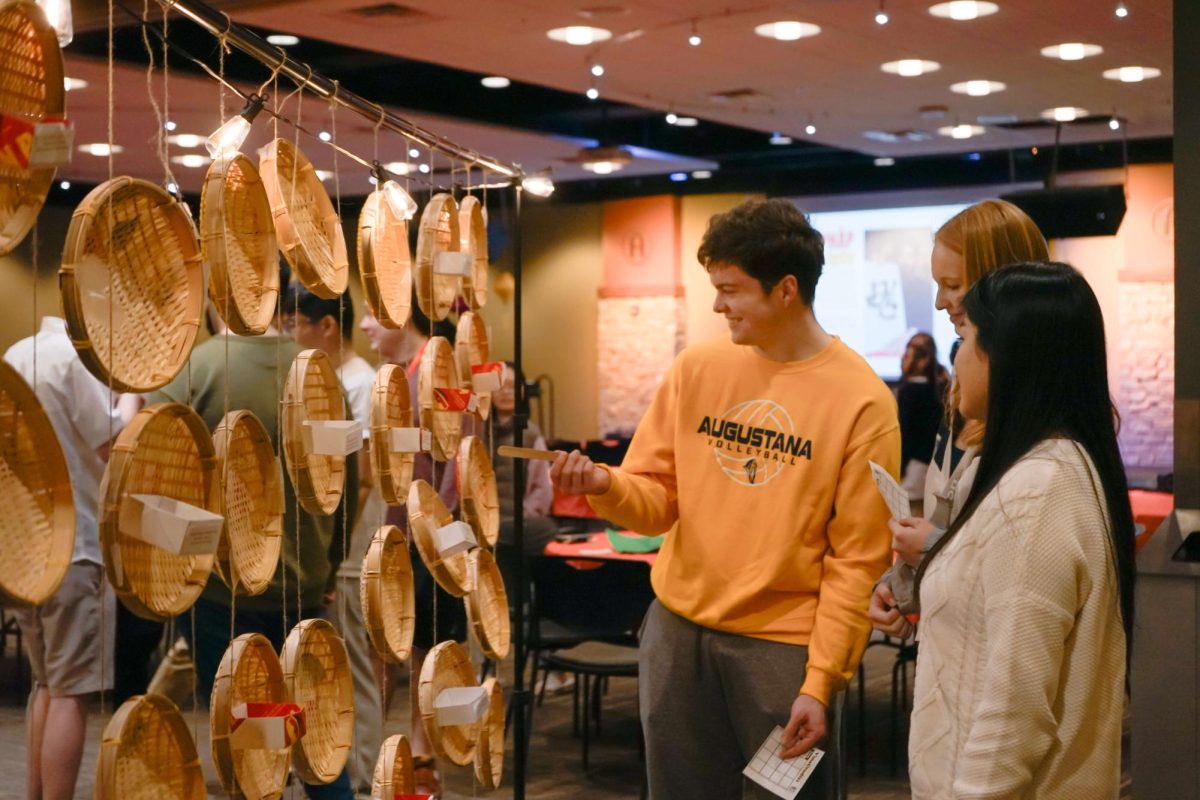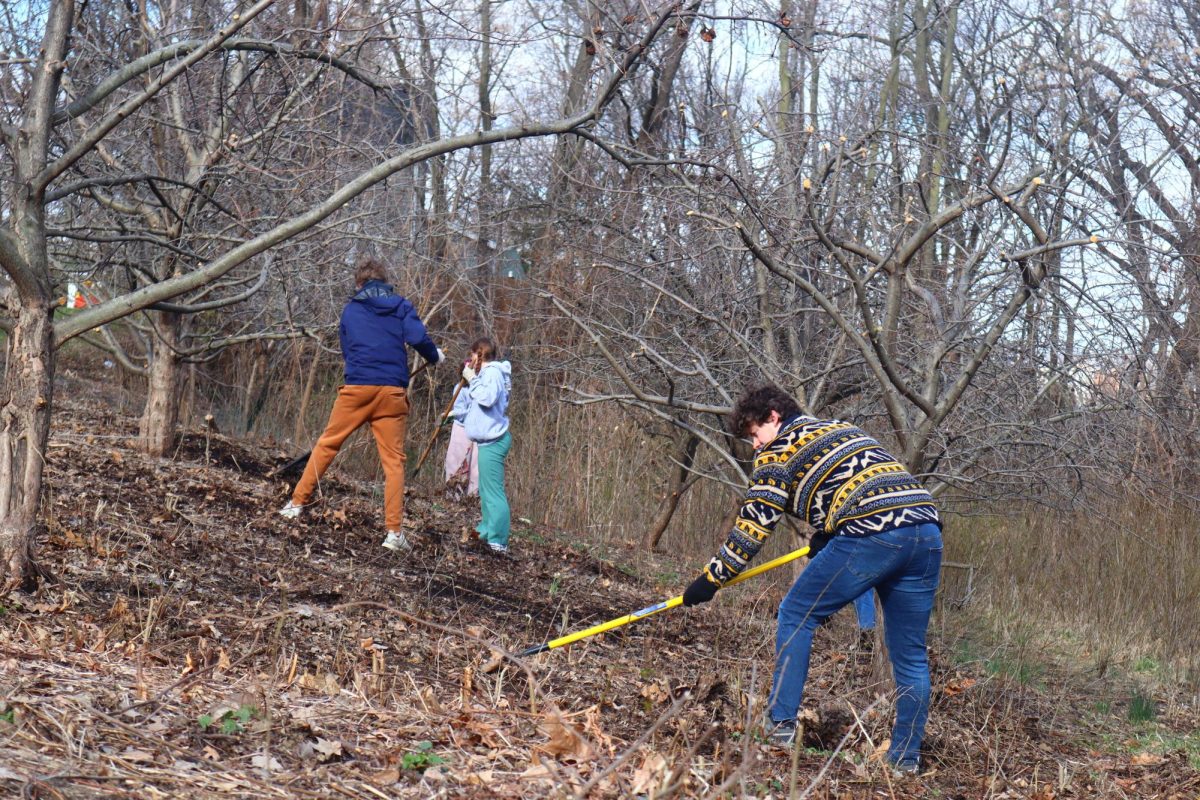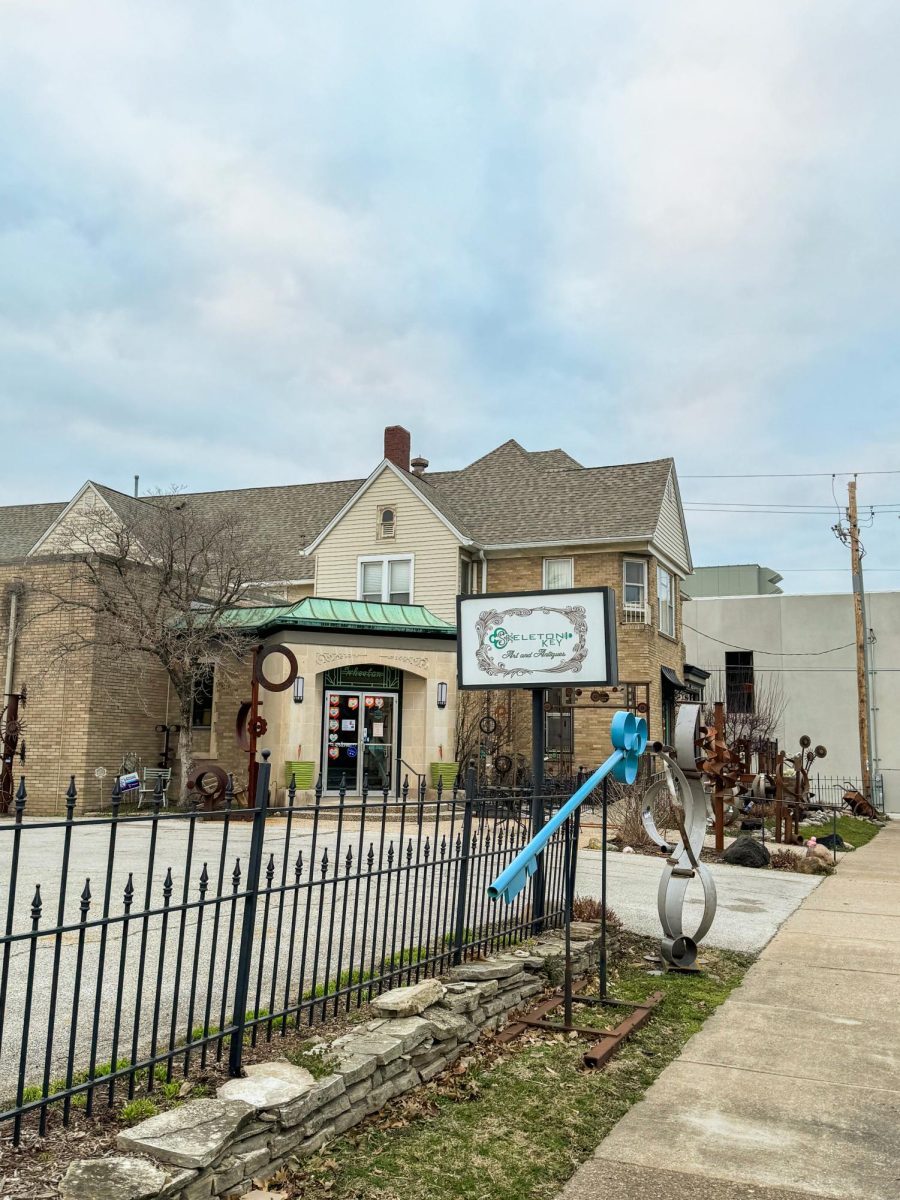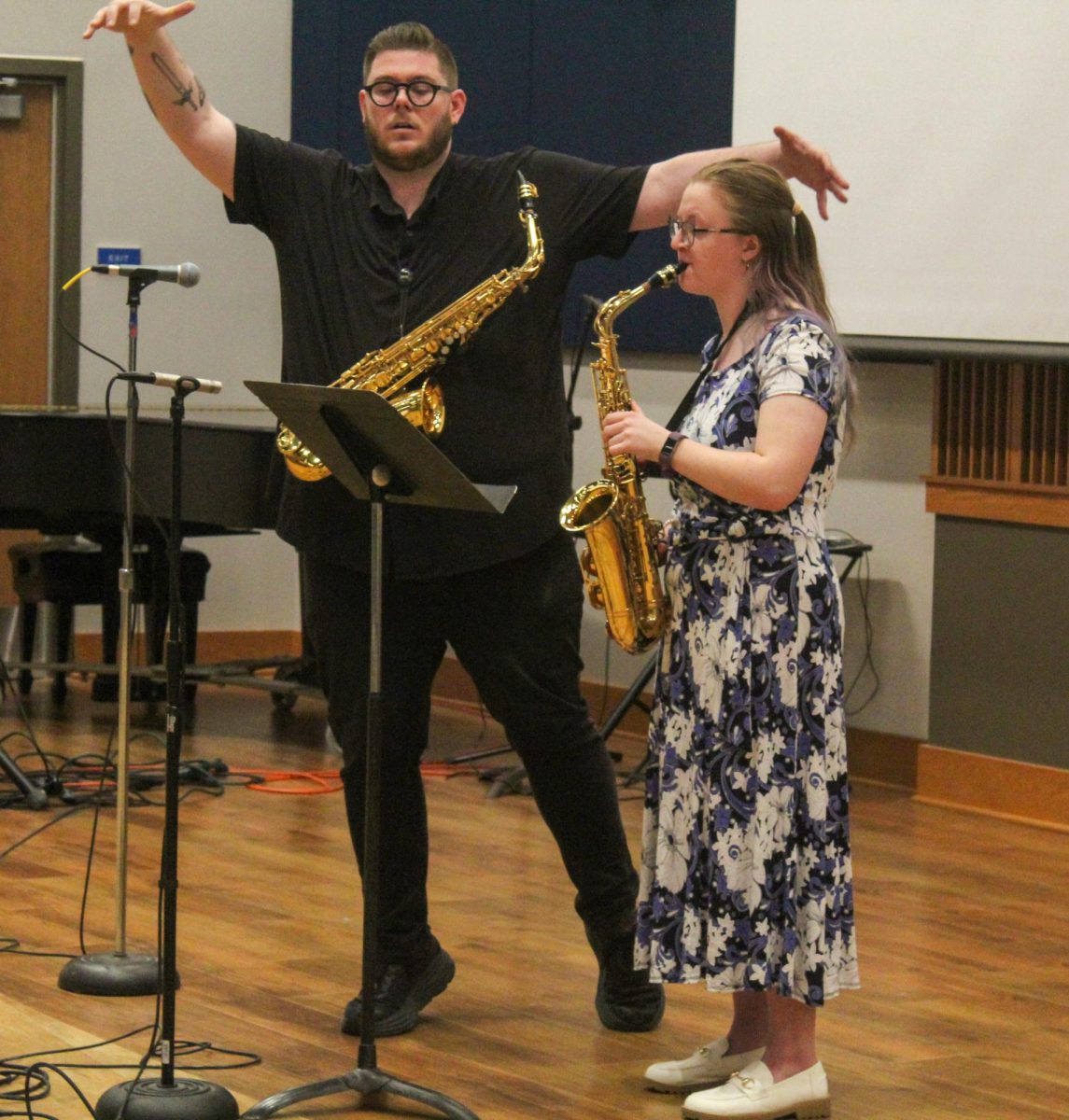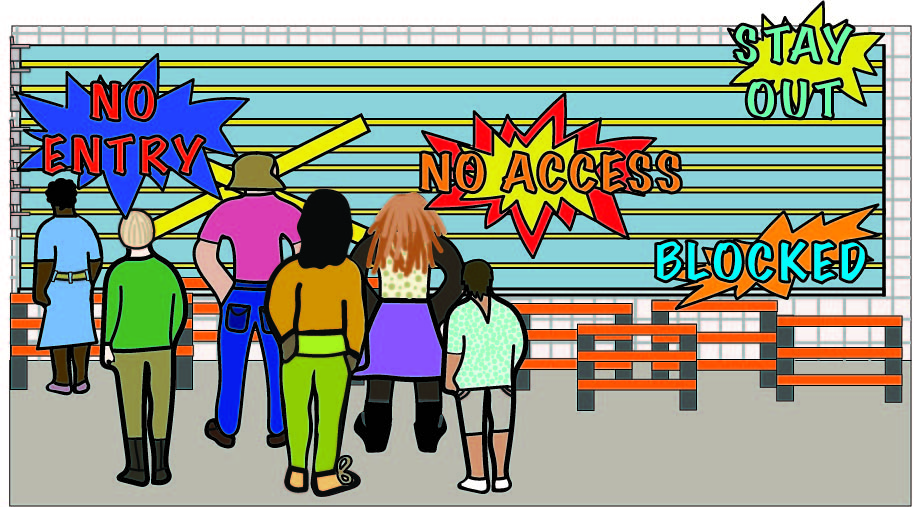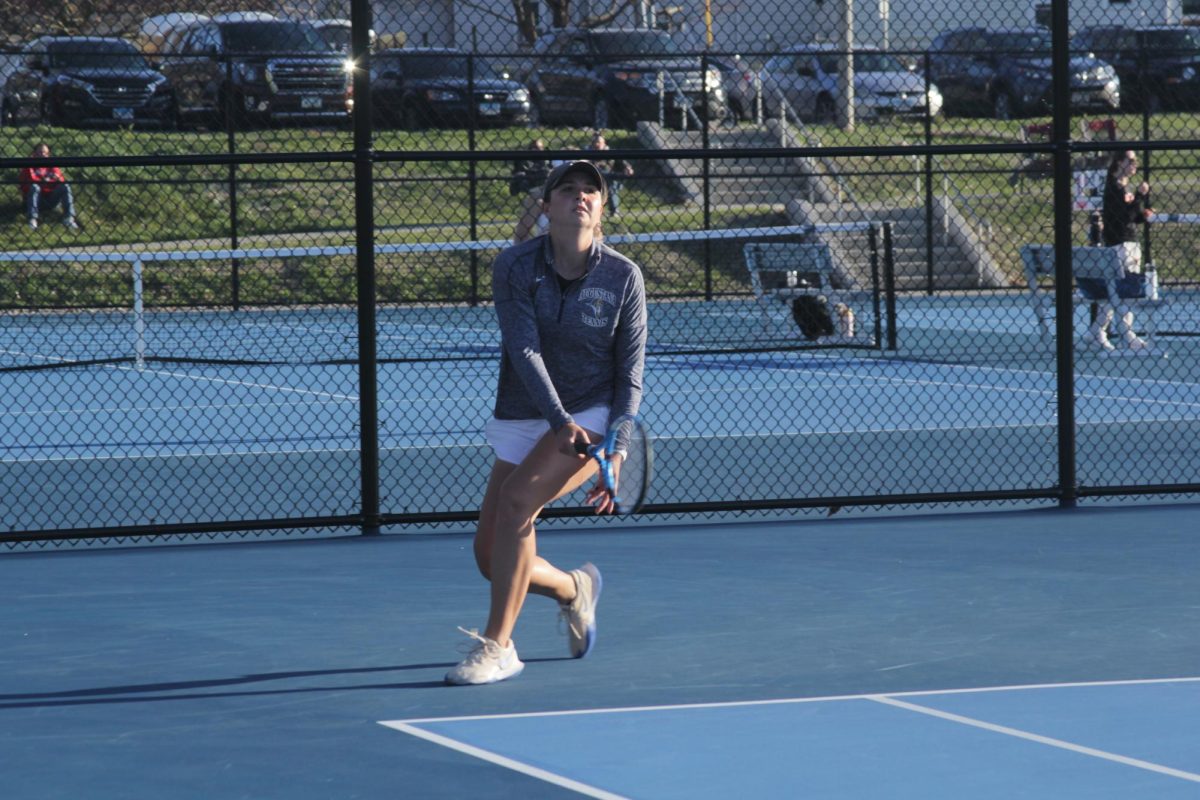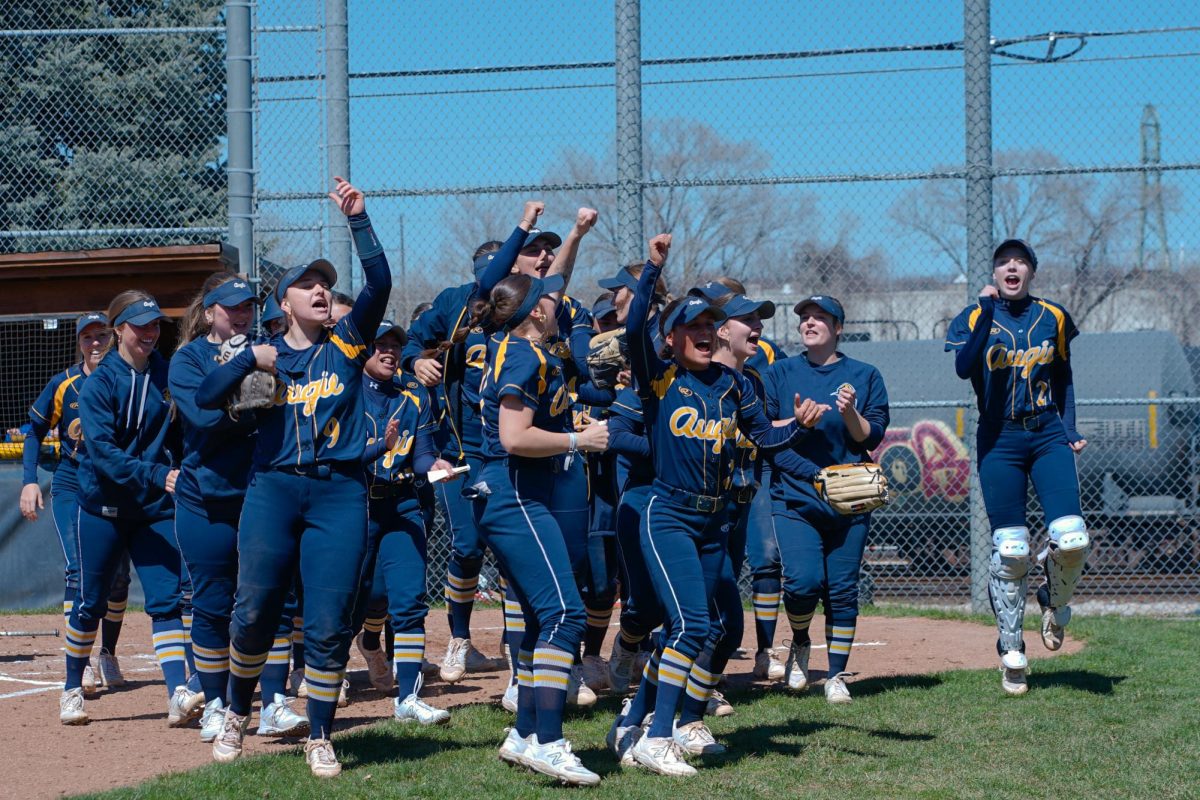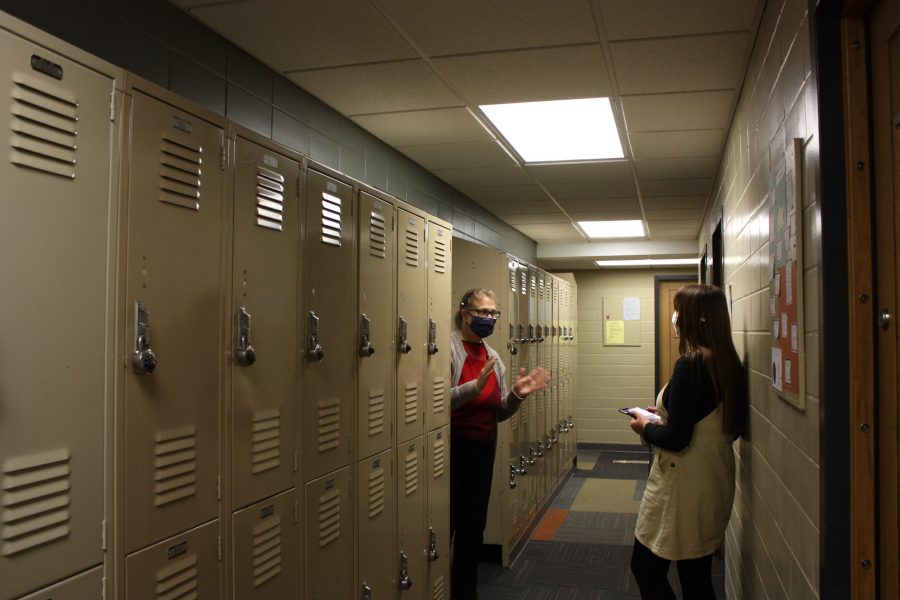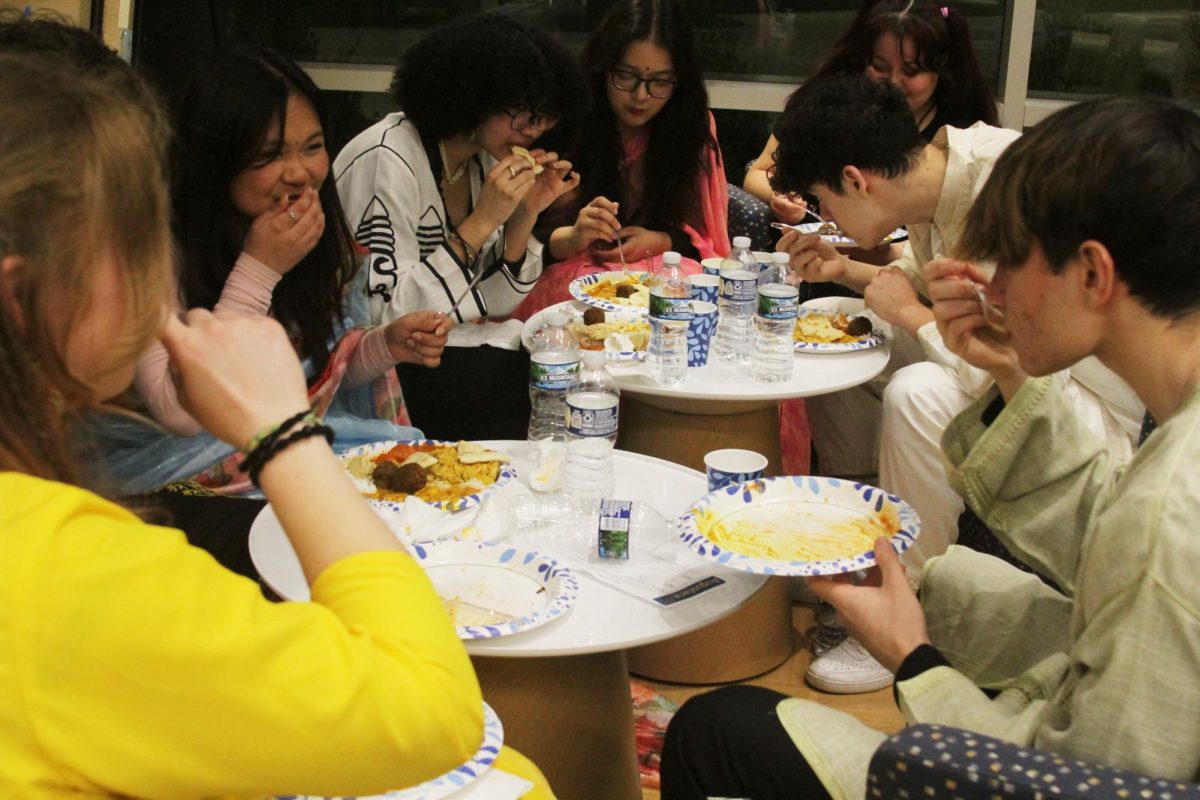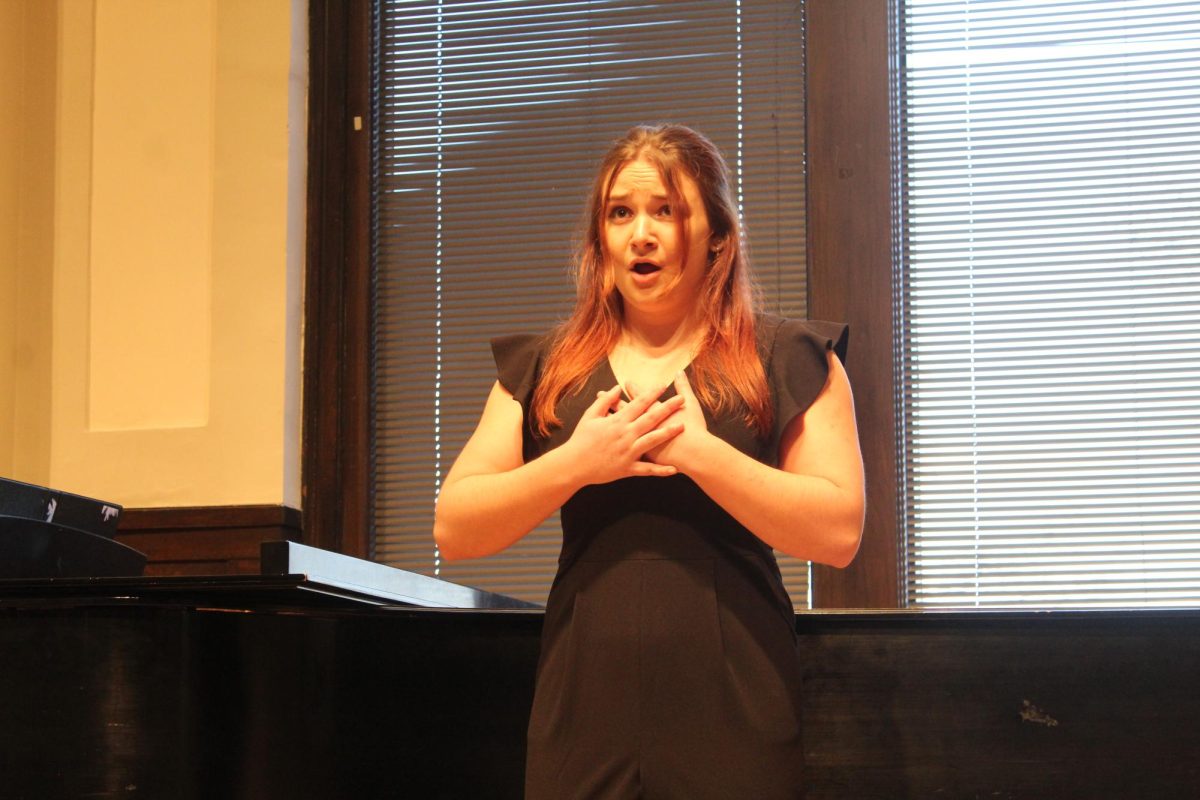Photo Above: Deborah Dakin, adjunct assistant professor of music, explains how COVID-19 has changed the music administration to reporter Abigail Larson in Bergendoff Hall on September 30, 2020. Photo by Grace Taglia.
After the cancellation of their season in March, the Quad City Symphony Orchestra (QCSO) took the stage for the second concert in their new season on Oct. 3-4. The new season presented unexpected challenges and changes with repertoire, rehearsals and concerts, but that has not stopped the QCSO from performing
When it became clear that COVID-19 would affect their season back in March, the QCSO formed a task force consisting of board members, staff, musicians and officers from the Scott County Health Department to help make decisions about their future plans.
The task force met weekly to figure out how to socially distance both musicians and audiences . All plans were finalized through the Health Department, and the weekly meetings still continue.
Rehearsals for the QCSO are now structured differently, with string-only portions and breaks to sanitize the stage. Social distancing prevents musicians from sharing stands, which was previously done to ensure someone would always be playing when the sheet music was turned.
The number of those rehearsing has changed, too. The QCSO is composed of 88 musicians, but only 40 members can play for the fall. Because of the size difference, the music they were playing had to change.
The concert featured two string-only pieces, “Banner” by Jessie Montgomery and “Lyric for Strings” by George Walker. String arrangements were specially chosen for this concert because players could remain masked and because string instruments don’t produce any aerosols, unlike brass and woodwind instruments.
As the performance was in celebration of his 250th birthday, the other songs performed, “Coriolan Overture” and “Symphony No. 1,” were composed by Beethoven himself. The QCSO planned on playing Beethoven’s ninth symphony for this concert which would have featured the Augustana Choir. However, size restrictions forced them to switch to his first symphony, which was better suited for the new size of the group.
Despite these changes, members of the QCSO were excited to get back to playing, given that many other symphony orchestras canceled their seasons completely.
“It’s good to have figured out a way to get back on stage, cause you know the alternative isn’t something different, it’s nothing,” Marc Zyla, principal horn, orchestra personnel manager and director of education and community engagement of the QCSO, said. Zyla is also a part-time instructor of music at Augustana.
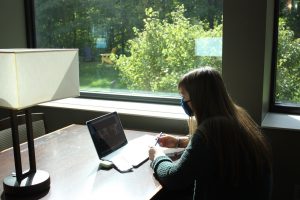
Other members of the QSCO were excited that these changes allowed them to experience new things. Because of the restrictions on musician numbers, the symphony orchestra was now able to play pieces meant for smaller groups.
Sabrina Tabby, violinist for the QCSO and instructor of violin at Augustana, enjoyed the previously mentioned “Banner” especially.
“You’re used to hearing the orchestra play very proper, kind of straight-laced stuff, and this is definitely breaking those boundaries, and bringing a more reflective voice of our current times,” Tabby said.
“Banner” is a rhapsody on the Star-Spangled Banner written by Jessie Montgomery, an African-American composer also well known for her violin skills.
“Banner” and the rest of the pieces were enjoyed by a couple hundred fully-masked audience members on Saturday and Sunday and by those who watched the program online through QCSO’s Uscreen streaming channel.
In addition to masks and home viewings, performance changes included no intermission or food in the lobby, both omitted in an effort to prevent the gathering of people.
Though the new season has come with obstacles no one could foresee, the QCSO continues to make the best of their situation. Members are happy to even have the opportunity to play music together and enjoy the company of their fellow musicians.
Deborah Dakin, principal violist of the QCSO and assistant professor of music at Augustana, expressed her appreciation for the QCSO’s response to COVID.
“I have to tell you how proud I am of how this orchestra has been,” Dakin said. “They’ve really done well.”
Quad City Symphony Orchestra perseveres
October 14, 2020
Deborah Dakin, Adjunct Assistant Professor of Music, explains how COVID-19 has changed the music administration to sophomore Abigail Larson in Bergendoff Hall on September 30, 2020.
Leave a Comment
More to Discover

